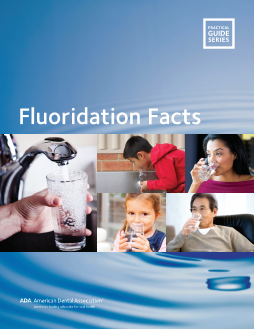ADA council develops statements on clinical autonomy, water fluoridation

The ADA Council on Ethics, Bylaws and Judicial Affairs has published white papers on clinical autonomy and water fluoridation.
The council formed two task forces to look into the individual topics, both of which are timely and of interest to many ADA members, said Kelly Roth, D.D.S., council chair.
“Part of our mission as a group is to find opportunities to lift the ADA’s Principles of Ethics and Code of Professional Conduct while assisting dentists to be the best, most ethical dentist they can be,” Dr. Roth said. “These two issues were brought to our attention, and we leaped into service.”
Clinical autonomy
The task force on clinical autonomy, chaired by Peter Korch, D.M.D., said the white paper identifies several areas where the ethical tradition between the patient and dentist may be at risk and provides an ethical framework for making clinical decisions.
The council got the idea to look into the topic from ADA President-elect Richard J. Rosato, D.M.D., who suggested it at a meeting. The council recognized the nature of the problem and wanted to act decisively, Dr. Korch said.
“The importance of clinical autonomy cannot be overstated. The dentist-patient relationship represents a covenant between these two parties; it is as close to something ‘sacred’ as exists in our profession,” Dr. Korch said. “Outside influences which interfere with that relationship are therefore a fundamental attack on what we do as dentists. We hope the paper will serve as a catalyst for broader discussions supporting the autonomy of the traditional dental decision-making process.”
Water fluoridation
Community water fluoridation and fluoride in general have been hot topics in the news in 2025. Some states have passed laws removing fluoride from the water and public health advocates, including the ADA, have been fighting to inform the public and lawmakers of the importance of community water fluoridation, fluoride supplements and fluoride in toothpaste.
“After attending the National Fluoridation Advisory Committee meeting as the liaison from CEBJA, it became clear that a look at community water fluoridation through the lens of the ADA Code of Ethics was in order,” said Beth Goldman, D.D.S., chair of the water fluoridation task force.
The task force looked at patient autonomy, nonmaleficence, beneficence, justice and veracity to help determine whether it is ethically acceptable to provide community water fluoridation without individual consent and define the responsibilities of individual dentists and the ADA in the debate.
“The ethical dentist should assist patients in understanding the benefits of fluoridated water, including the reduction of health, fiscal and personal costs of tooth decay, and respect patients wishing to exert their autonomy by opting out of consuming fluoridated water,” according to the white paper. “"By providing all residents, regardless of income, education, or access to dental care, with consistent protection against tooth decay, fluoridated water helps reduce disparities that disproportionately affect low-income and marginalized communities."
To read additional statements from CEBJA, visit ADA.org/about/principles/code-of-ethics/cebja-statements-and-white-papers.


